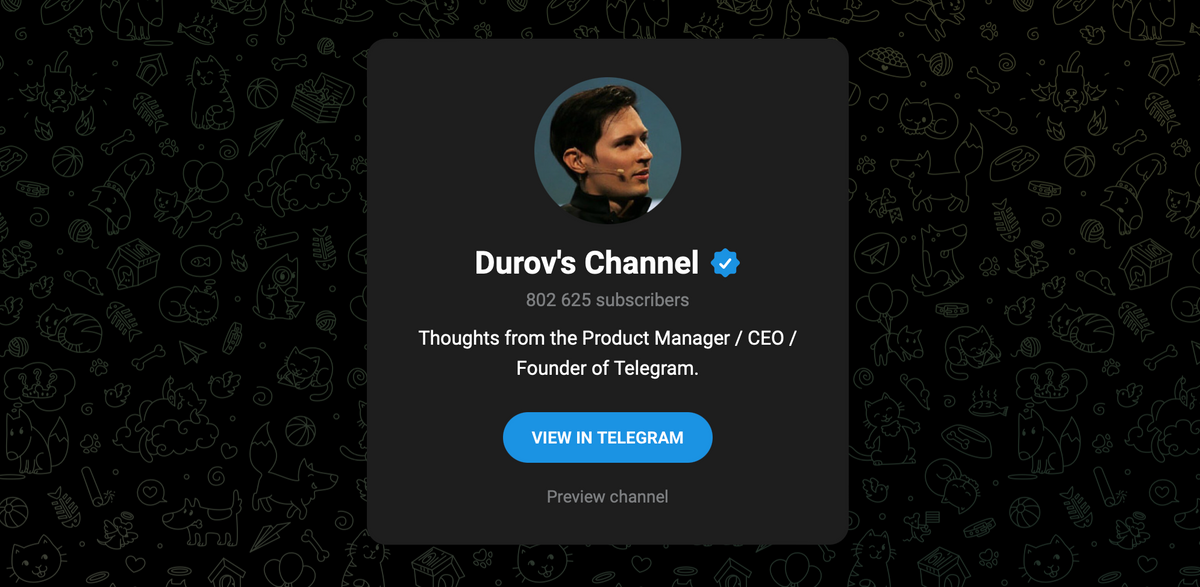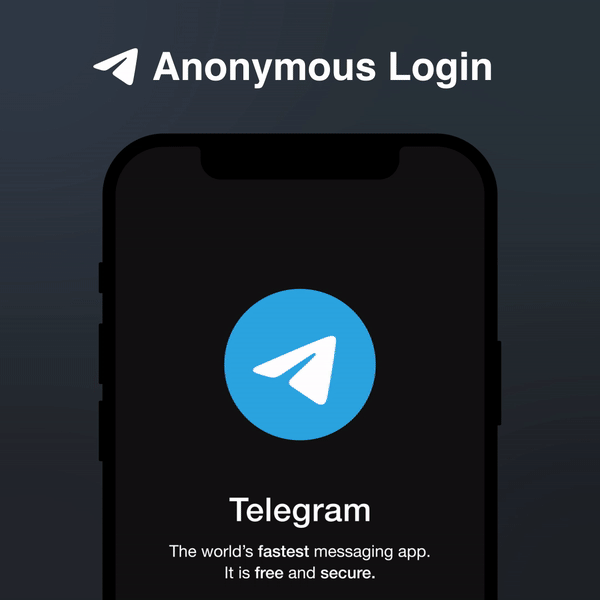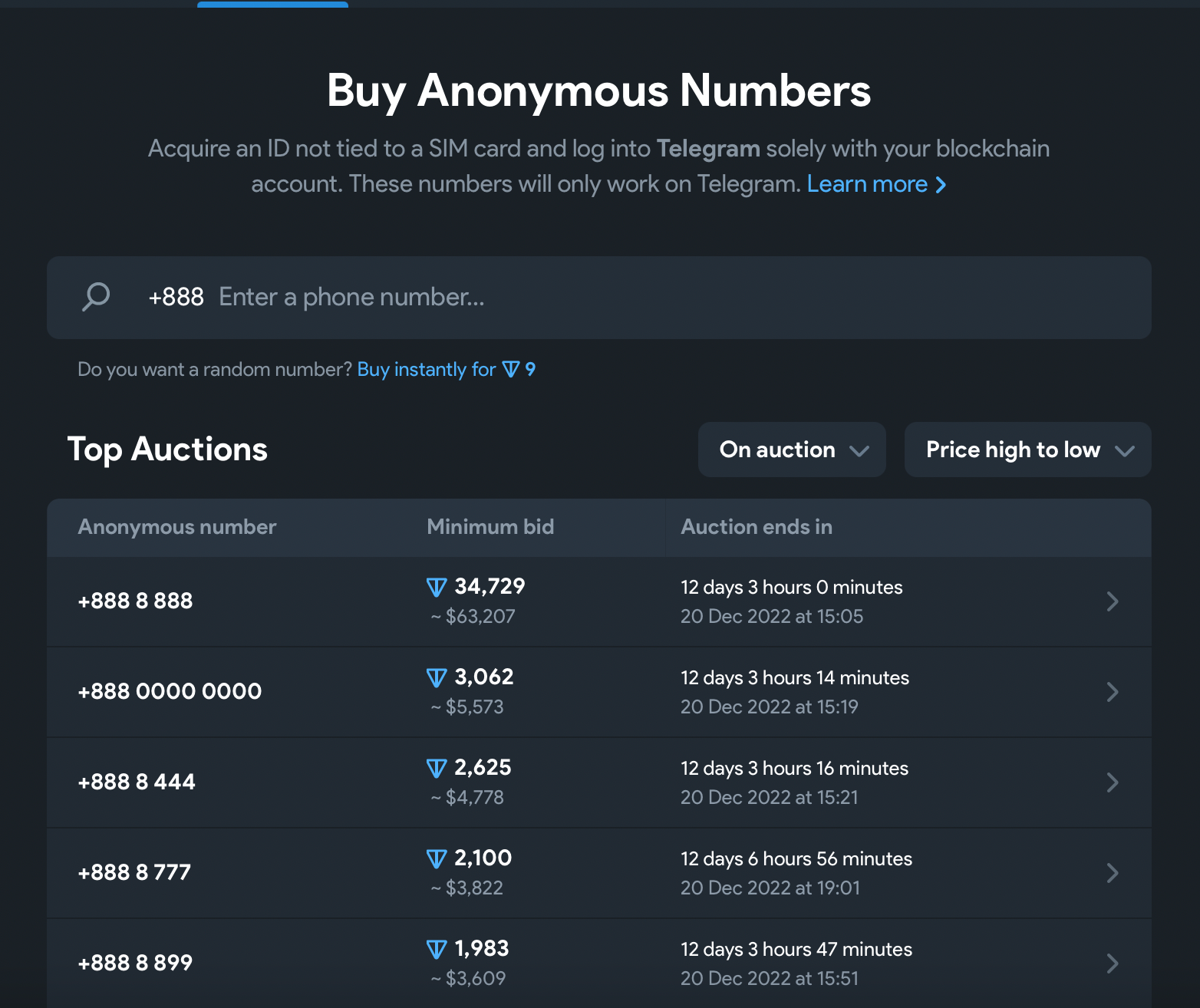
The latest Telegram update was launched on Dec 6. Its main feature is the possibility for users to buy and use blockchain powered numbers for registration instead of usual mobile phones.
Today starts a new era of privacy. You can have a Telegram account without a SIM card and log in using blockchain-powered anonymous numbers available on the Fragment platform [Telegram auction platform],” - says an announcement in company’s blog.

☝ FYI: Durov is not a new comer in the blockchain world. TON, layer-1 blockchain, was developed by Telegram CEO Durov and his brother back in 2018. TON was abandoned by Durov under regulatory pressure in 2020, but the open-source community has kept it alive and now it is not only “fully live operational”, but has at least two forks managed by two competing communities. In August 2022 TON official website went back to live and Durov started developing crypto services.
Blockchain-based auction platform, Fragment, which is based on The Telegram Open Network, was launched around one month ago. On Fragment, people can buy and sell usernames using Toncoins, the network’s native coin. According to a recent post in Durov’s channel, “Fragment has been an amazing success, with 50 million USD worth of usernames sold there in less than a month”. Now the auctioneer has expanded beyond usernames - blockchain based numbers are already available. At the moment of writing the most expensive number - +8 888 888 - costs more than 63,000 USD, but less “attractive” numbers can be bought for approximately 100 USD. A random number can be bought for only 9 TON which is 16 USD.

In the same post, Durov refers to the FTX collapse and claims that the blockchain industry got too centralised and now needs to go back to decentralization - and he’s ready to take part. This is what he says about Telegram’s future plans:
“Telegram's next step is to build a set of decentralized tools, including non-custodial wallets and decentralized exchanges for millions of people to securely trade and store cryptocurrencies. This way we can fix the wrongs caused by the excessive centralization, which let down hundreds of thousands of cryptocurrency users”.
As well established exchanges become less and less reliable, so it’s the right time to launch the project - new blood can be a success. Blockchain numbers also look like a breathe of fresh air, and even if they won’t grow from just a means of getting confirmation codes for Telegram, they will definitely attract users’ attention and money. Besides Telegram monetization (Telegram Premium and ads) which started this year seems to be going great, and it means that its team has enough sources to develop more instruments. Let’s observe how it goes!

